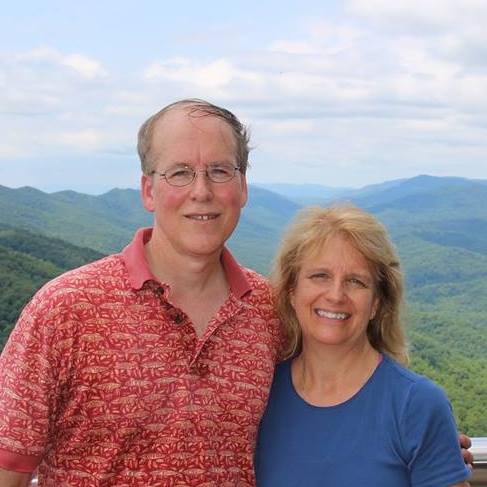COSAM News Articles 2020 June Philosophy Professor Uses Foundation in Physics to Teach Students to Think with Different Perspectives
Philosophy Professor Uses Foundation in Physics to Teach Students to Think with Different Perspectives
“Studying physics was an immense help in learning to think clearly. I learned to note carefully the methods that were used to reach a given conclusion, the assumptions that were made, and what degree of certainty could be claimed for the result. These are habits that I’ve tried to keep in all my work,” explained David Bradshaw who graduated with a Bachelor of Science degree in physics from Auburn University in 1982.
Bradshaw has spent the last three decades teaching students to think and discuss different perspectives as a professor in the Philosophy Department at the University of Kentucky.
“I love discussing ideas with students,” Bradshaw added. “I like to hear what they think, why they think it, and what are the questions or worries that they have. I hardly think of what I do as teaching. It’s more like an extended conversation. My job is to present what the philosophers we’re studying have to say and the students then define their own ideas by interacting with them.”
At the University of Kentucky, Bradshaw focuses on making the classroom experience the most for his students.
“One thing that makes a class memorable for students is hearing from each other,” he said. “By this I mean not just working together on homework or group projects, but hearing what other people think and why they think it. That can include their experiences and even their beliefs about matters of fact, which may be very different from your own. So I try to get my students talking to each other and ideally debating with each other. Oddly enough, that’s been getting harder in recent years. For some reason students seem to think it’s impolite to openly disagree with someone. But debate is essential to a good education.”
While at Auburn, Bradshaw explained how the Department of Physics left an impact.
“I was greatly struck by what I learned about the mathematical structure of reality,” he shared. “I found it intriguing and rather beautiful how the same types of equations kept recurring in seemingly disparate fields like mechanics and electromagnetism. That’s partly what led me into philosophy. I wanted to understand whether these basic intelligible structures are really present in nature or are simply artifacts of our minds, and if they are really present, how and why that’s the case.”
He had several Auburn professors that helped shaped his career.
“I loved many of my physics professors—Dr. Clothiaux, Dr. Thaxton, Dr. Fromhold and many others,” Bradshaw explained. “However, my absolute favorite professor was Dr. Ward Allen in the English department. Getting to know him changed my life. He taught me to appreciate the beauty of words and how the way that you put a thought or a feeling into words helps make it what it is. He was also probably the kindest person I have ever met. I married his daughter and we have been happily married for 37 years.”
“One thing that had a great effect on me was the way Dr. Allen would ask me questions in class,” he added. “He knew I was a Physics major, so any time a question came up in our readings that related to science he would ask me what I knew about that. He didn’t ask in a teasing way, but as if I really was an expert. Of course most of the time I didn’t know, but he never seemed disappointed. He would just ask me another question later. I took away from this the sense that the education I was getting was an incredible privilege. If here was a professor treating me like someone who has valuable knowledge, I had better be that kind of person.”
Bradshaw shares how he continues to learn in his career.
“For me one of the most important things has been reading outside my own field,” he said. “Since I work on ancient philosophy and the way it helped shape western culture, it’s important for me to know something about ancient literature and history, as well as the different forms of religious culture in the Middle Ages. So I read a lot of history and theology. Reading science is also helpful since it gives you ways of thinking about the world that stretch your imagination.”
Latest Headlines
-
07/09/2024
-
Summer Bridge Program celebrates 21 incoming Auburn students as they prepare for future STEM careers07/02/2024
-
07/02/2024
-
06/17/2024
-
06/07/2024

